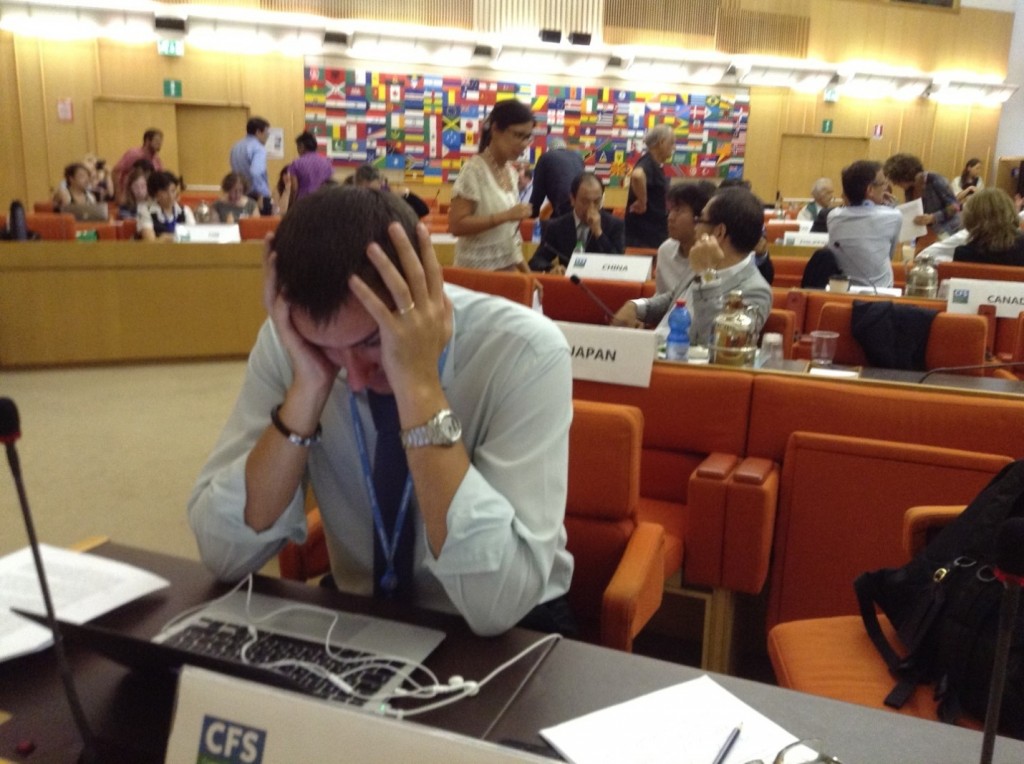The North Atlantic Treaty Organization (NATO) summit in South Wales held 4–5 September 2014 was heavily mediatized in member countries as a “wake-up call” for this military alliance, for Europe, and even for Western civilization. Violence in eastern Ukraine, for which Vladimir Putin alone was allegedly responsible, was said to be catapulting the world back to the polarization of the Cold War. Yet when one looked more closely, Putin’s propaganda was restrained in comparison with the inflammatory rhetoric of the retiring NATO secretary general and the hyperbole of the US State Department and numerous European politicians with only one thing in common: They knew little or nothing about the history of Ukraine.
Monthly Archives: September 2014
Philip McMichael & Birgit Müller: The Land-Grab Trap: Is There a Will to Govern Global Land Grabbing?

Pause in the negotiations in the Red Room of the Food and Agriculture Organization (FAO)
How to govern the “global land rush”1 was at issue in the final negotiations on the Principles for Responsible Investment in Agriculture and Food Systems at the Committee for World Food Security (CFS) in Rome, held 4–8 August 2014. For a week, a policy drama unfolded. On stage were private sector organizations, clearly supported by the United States, Canada, and Russia, that wanted to prevent any regulation of investments. Opposing them were Civil Society Organizations (CSOs)—supported by Brazil, Ecuador, and, to some extent, Indonesia and Sudan—that wanted commitments from the governments to assume their obligations to govern investments in such a way as to realize the right to food as a national priority.
Steve Reyna: Bloat and tents: Further thoughts on Timothy Mitchell’s Carbon Democracy
This brief note suggests some directions that a rising Marxist anthropology might consider taking. Sandy Smith-Nonini and Donald Nonini have done a wonderful job explaining why Carbon Democracy is a “brilliant” book that is “essential reading for anthropologists” (2014), especially for those concerned with the political economy of fossil energy. Elsewhere, I have reviewed Timothy Mitchell’s book (Reyna 2012) and offered some suggestions concerning an approach to the anthropology of hydrocarbons (Behrends, Reyna, and Schlee 2011), so I do not propose to discuss here either the substance of Mitchell’s argument or the emerging literature on the anthropology of oil. Rather, I will explore two implications of Mitchell’s work for the very nature of the anthropological project. These implications deal with bloat (conceptual) and tents (pup and big top).